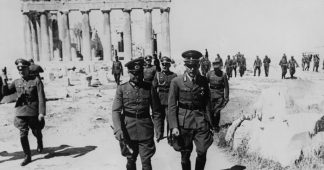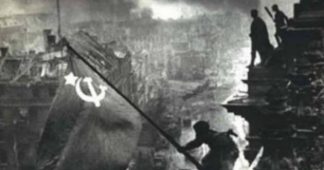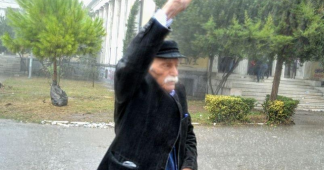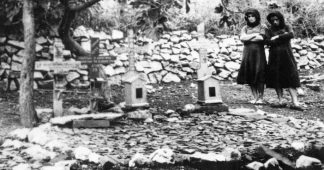International Federation of the Resistance fighters (FIR) – Association of the Anti-fascists
The aggression of German Wehrmacht since April 1941 led the peoples of the Balkans to develop their resistance in the following months after the military occupation. In today’s successor states of the former Yugoslavia, there have been several commemorative events in recent weeks in memory of Josip Broz Tito’s call for resistance. On September 27, 2021, Greek anti-fascists will also commemorate the founding of the National Liberation Front (EAM) 80 years ago.
For Hitler’s Germany, Greece was a strategic Mediterranean access, but above all a region to be plundered. The occupying forces confiscated vehicles, machinery, money, and food supplies. At the same time, the German Wehrmacht established a regime of terror. It was exemplified by the crimes committed after the capture of the Greek island of Crete. General Kurt Student issued an order on May 31, 1941, according to which the military groups attacked by “free rioters” had to “exterminate” the male population in the affected localities and destroy all houses. According to recent research, nearly 9,000 people died by the end of the war as a result of this reprisal in Crete alone. Similar crimes took place in all parts of the country and affected the 50,000 Jewish residents of Thessaloniki, almost all of whom were deported within a few weeks.
Despite the terror, there were the first visible examples of resistance. On May 30, 1941 in Athens, two 19-year-old students took down at night the swastika flag that the occupation forces had hoisted on the Acropolis and raised the Greek flag. This action made Manolis Glezos and Apolostos Santas anti-fascist legends – and set the starting point for one of the largest and most successful resistance movements against Nazi rule in Europe.
After intensive negotiations between the Communist Party of Greece (KKE) and three other small leftist parties, the National Liberation Front of Greece (Ethniko Apelevtherotiko Metopo, EAM) was formed on September 27, 1941. The EAM quickly became the largest resistance organization. In its founding charter, it called for the liberation of the country, the restoration of sovereignty and the formation of a transitional government after the expulsion of the occupying forces. Its task was to prepare free elections in order to let the Greek people themselves decide on the form of government they wanted. However, the most urgent task of the National Liberation Front was initially to deal with the everyday hardships of the people caused by the occupation – the catastrophic food situation triggered by the unrestrained economic exploitation of the country, which caused about 100,000 deaths in the first winter of occupation. In addition, the EAM organized demonstrations and strikes through its trade union branch.
In February 1942, the Greek People’s Liberation Army (ELAS) was founded as the armed arm of the EAM, under the supreme command of Aris Velouchiotis. It was the leading force of the partisan struggle against the German occupiers and their allies. One important action, for example, was the destruction of the Gorgopotamos Bridge, the central transport route for the occupation forces between Athens and Thessaloniki, in November 1942.
EAM and ELAS had the decisive part in the Greek liberation struggle. Nevertheless, in 1945, after the expulsion of the German occupiers, they were opposed in the Greek Civil War as a “communist threat” by the monarchist government with the support of the British Army. This led to a lack of state recognition of the partisan struggle for many decades in Greece. Despite all appreciation of the EAM resistance, there is no common memory until today.
The FIR and its member federations will never forget the great achievements of the EAM and the ELAS. They greet on the occasion of the 80th foundation anniversary the Greek comrades of the PEAEA-DSE and expect that also from the side of the Greek government this partisan fight receives an appropriate appreciation.
We remind our readers that publication of articles on our site does not mean that we agree with what is written. Our policy is to publish anything which we consider of interest, so as to assist our readers in forming their opinions. Sometimes we even publish articles with which we totally disagree, since we believe it is important for our readers to be informed on as wide a spectrum of views as possible.











